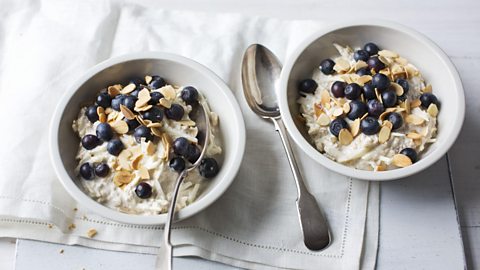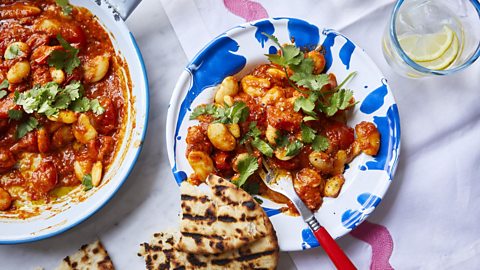Can food trigger migraines?
From chocolate to cheese, does what you eat and drink worsen or improve migraines? Experts explain…
By Kate Jones

Approximately suffer from migraines in the UK. The condition is most common between ages 25-55, with .
It’s not known what them and they can be hereditary. But some people do find that certain things can trigger their migraines, including food and drink. We spoke to scientists and experts in the field to find out more.
Common triggers
Prof. Gisela Terwindt, neurologist-biologist at Leiden University Medical Center, The Netherlands reports that 30% of migraine sufferers find certain foods triggering. The difficulty is that different foods can be triggering for different people.
In 2015, researchers from the , suggested ‚Äėcheese, red wine, chocolate, monosodium glutamate, foods containing nitrates (e.g. hot dogs, delicatessen meat, sausage, bacon) or tyramine (e.g. tofu, soy, miso), and citrus fruits or juices,‚Äô were all common triggers.
‚ÄúThe strongest [foods] we‚Äôve got a link for are tyramine-containing foods for some individuals who live with migraines,‚ÄĚ explains Dr Duane Mellor, a spokesperson for the British Dietetic Association. This compound, which occurs naturally in cheese, can also be found in sweets, chocolate and red wine.
Tyramine is And there’s evidence to suggest that amines can result in migraine symptoms if . Amines are present in caffeine and lots of food and drinks.
With that in mind, the NHS have previously recommended avoiding high-amine foods for a month to see if symptoms improve. Foods on the avoid list include alcoholic and low-alcohol beers and wines, chocolate and cheese, along with coffee, tea and other caffeine stimulants. Other foods the NHS suggests avoiding include citrus fruits and their juices, pork and pork products, broad beans and peas and prawns, shrimps and crab.
Related stories:
The importance of eating regularly
Not eating regularly or skipping meals can also be problematic when it comes to migraines.
‚ÄúPoor diet and poor routine can be triggers,‚ÄĚ explains Mellor. ‚ÄúYou‚Äôve [also] got the aspect of the migraines themselves that can cause nausea and vomiting, which obviously interrupts someone‚Äôs interest in food.‚ÄĚ
At the in London, Terwindt displayed a cross-sectional study that showed that around 50% of women and around 40% of men reported skipping meals as a migraine trigger.
It‚Äôs just as important to drink regularly, as dehydration is also regarded as a trigger. And remember some drinks ‚Äď including alcohol can lead to being dehydrated. At the same presentation, Terwindt explained that 40% of men and women who experience migraines reported alcoholic drinks as a migraine cause.
Apple elderflower cooler
Staying hydrated is important to prevent migraines say experts. This drink is both refreshing and a great alternative to an alcoholic option

Could changing your diet help to prevent migraines?
In 2022, experts from Stanford University explained that before dietary interventions can be recommended . However, they did note that meal regularity, healthier diets and weight loss are linked to reduced headache burden and that ‚Äėmodest evidence‚Äô supports particular diets for migraine-prevention, including the low-glycaemic index diet, ketogenic diet and .
Overnight oats
Could this low-g.i. breakfast help to prevent migraines?

Before you start removing ingredients from your diet, speak to your GP or a medical professional, because the relationship between diet and migraine is not clear cut.
‚ÄúThere‚Äôs really very little evidence that any diet specifically helps or triggers a migraine,‚ÄĚ notes Debbie Shipley, head of information and support services at The Migraine Trust (adding that there can be a lot of variation in diet‚Äôs role in the condition).
‚ÄúThere is some suggestion out there that there is such a thing called a migraine diet,‚ÄĚ Dr David Kernick from The Exeter Headache Clinic said at the . ‚ÄúYou may wish to try it and see if it works for you, but the evidence is not strong. I think the most important thing is to have an anti-inflammatory diet, keep away from processed food and eat sensibly - fruit and vegetables, non-processed [and] lots of high-fibre.‚ÄĚ
‚ÄúIt‚Äôs [about] having [a] healthy, regular eating pattern and not going long periods without food or drink,‚ÄĚ Mellor adds.
Curried butter beans with flatbreads
High-fibre dishes are said to help some migraine sufferers

‚ÄúMigraines like consistency, so if you skip meals and that sort of thing, that can trigger a migraine,‚ÄĚ Shipley adds. The Migraine Trust recommends that migraine sufferers keep a headache diary to identify whether certain foods may be triggers for them.
‚ÄúEveryone is individual,‚ÄĚ Mellor adds. ‚ÄúIf [a person is] finding or [feels] that foods may be triggering their migraine, [they should] think about what that food is before they exclude it completely from [their] diet because they could be missing out on key nutrients from that source of food‚Ķ If they are cutting something out of their diet, make sure the nutrients that are found in that food are sourced from other foods ‚Äď and, if need be, seek advice from a registered dietitian or nutritionist to have a balanced overall diet.‚ÄĚ
Originally published November 2024